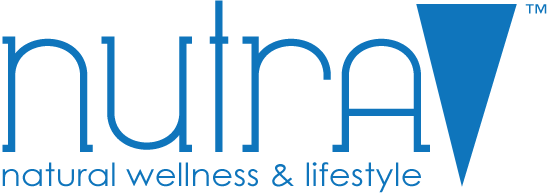Does Coffee Break a Fast?
The practice of fasting is growing more popular each year, with more people worldwide incorporating this traditional health technique into their modern lives. But even with increasing proof that fasting helps with a longer and healthier life, there are still many questions unanswered about fasting. And one question stands out for coffee lovers: Does coffee break a fast?
The quick answer is most likely no, but like many answers regarding fasting, it's complicated.
It is time to take a closer look at your coffee intake while fasting and learn if it is right for you.
===
What Does it Mean to "Break a Fast"?
To find out if coffee works, we should start by answering what it means to "break a fast." The answer, after all, isn't as clear as you may think. It depends on what your personal definition of "fasting" is. For instance, if you say it is abstaining from food and also beverages, then even water breaks it.
But there are many types of fasting. There is short-term periodic fasting, alternating-day fasting, juice fasting, broth fasting, and water fasting, just to name a few. Each method has its own advantages. The method of fasting you choose is up to you.
In broad terms, most professionals agree you should reduce your intake to only a few calories. But does this allow for juice and broth fasting? And what about zero-calorie drinks or supplements? It turns out that for each of these methods, not all experts agree.
- Dr. Satchin Panda researches Time-Restricted Eating and circadian rhythms. On the subject of fasting, he looks specifically at the liver and concludes that anything other than water breaks a fast.
- Dr. Jason Fung is a diabetes professional and nephrologist. For his take on fasting, his focus is on blood glucose. He says neither coffee nor tea breaks a fast since both don’t produce a glucose response.
- Dr. Valter Longo is a longevity expert and has conducted research on anti-aging and found that the best results come from limiting the intake of calories. He created the Fasting Mimicking Diet (FMD) which is a short-term, low-calorie diet that is high in fat. High fat content has been clinically proven to mimic the benefits of fasting.
Each conclusion may leave you wondering who is right, but it's important to understand that each doctor is recommending fasting for different results, and this leads us to our point: What 'breaks a fast' depends on how fasting is defined and the results you’re looking to obtain.
You may be someone who wants to be rigorous with your fast, or you may be interested in ingesting a limited number of calories to get the advantages you need.
Does Drinking Coffee Break a Fast?
Although fasting has a long history and multiple points of view, any research on whether coffee is permissible during a fast is still new. Scientific literature does not clearly state that coffee breaks a fast; in fact, some studies discuss the benefits of certain fasts that include coffee and other caffeinated drinks. Whether or not to include coffee seems to come down to your goals.
Let's look at how coffee works with different types of fasting.
Fasting for Improved Body Composition
One of the reasons fasting is popular is because it reduces food and drink cravings for improved weight loss. It also increases fat oxidation and activates the NRF2 pathways, a natural protein in the body which is said to increase metabolic energy and suppress lipid synthesis; thus, leading to fat loss.
Fasting for Physical Energy and Mental Clarity
We have all heard the term keto, Ketone or ketosis. The body, when fasted for longer periods of time, enters a state of ketosis, which leads to more energy and awareness, and this is enhanced even further with coffee. Caffeine not only adds to energy, but it also boosts cognitive ability that leads to increased clarity and concentration.
Due to these amplifying effects, it is worth noting that drinking coffee late in the day can negatively affect sleep, so it is usually best to drink it no later than early afternoon.
Fasting for Improved Gut Health
By reducing your caloric intake when fasting, you give your gut time to rest, helping your body produce healthy bacteria that kills off microbes, making your gut more resistant to stress and anxiety.
Coffee, and even decaffeinated coffee, can also provide benefits to your gut. They have been shown to reduce symptoms of leaky gut and increase the diversity of healthy bacteria within the gastrointestinal tract. Coffee also contains polyphenols that fuel microbes for improved digestive performance.
One well-known issue with coffee is that drinking it on an empty stomach can lead to acid reflux and heartburn. If this is the case for you, it may be best to eliminate coffee from your fasting routine.
Fasting for Added Longevity and Increased Cellular Health
One well studied benefit of coffee is the ability to improve overall health and vitality – specifically, autophagy (the act of cleaning out damaged cells and replacing them with healthier cells.) Though there are only short term results, the findings are positive and insightful. In 2014, a research study showed that both caffeinated and decaffeinated coffee caused autophagy in fasted mice which increased anti-aging characteristics; it is most likely due to the amount of polyphenols found in coffee.
Fasting to Boost the Immune System
Fasting provides positive results on the body's immune system, but does adding coffee help?
Caffeine is known to be anti-inflammatory, but how coffee affects body inflammation is still unknown. The general rule is that it’s benefits come from the high-quality organic beans.
The benefits of coffee on the immune system also seems to depend on the individual. Research suggests two autoimmune disease genes (NAT2 and also HLA) are markers of whether coffee is good or bad for you. NAT2, an enzyme that metabolizes foreign substances, and HLA, a leukocyte that helps produce antibodies can trigger coffee and autoimmune disease risk. People with autoimmune disorders are instructed to remove coffee from their diet for a designated period.
Fasting to Regulate Blood Sugar
Coffee can cause a minute rise in blood sugar in some people as they undergo fasting. The caffeine increases cortisol, which causes the liver to launch stored glycogen. Though this may sound bad, a temporary sugar spike can be a benefit, but it depends on when you drink your coffee.
Consuming coffee when you are active, such as just before a workout, helps burn glucose as a source of energy and may improve insulin sensitivity. If you are doing very little physical activity, it can lead to hormonal damage and reduce insulin sensitivity - especially when you limit your eating routine to early in the day.
Even though long-term studies are showing results of how coffee can affect insulin sensitivity, we still don't have the whole picture. Certain active individuals experience reduced insulin sensitivity through coffee.
Fasting for Added Spiritual Discipline
Fasting is an ancient tradition that spans all religions. Christians have Lent, Jews have Yom Kippur, and Muslims have Ramadan, and the list goes on.
While each religion has their own approach to fasting, all religions see fasting as integral toward spiritual purity. But since coffee is not factored into spiritual purity, the answer to this question is inconclusive and personal.
Will Adding Sweeteners to Coffee Break a Fast?
It's common to add ingredients to coffee such as milk and sugar, but do these additions break a fast?
Sugar has calories and is widely known to spike blood glucose. For this reason, it is seen as a barrier to fasting, and the typical recommendation is to leave it out of your coffee. Though some sugars have their place in a diet plan, sugar typically works against any fasting regimen– especially polished sugar, coconut sugar, maple syrup, and even honey.
Artificial Sweeteners (Sweet-n-Low, Equal, Splenda, etc.) are touted as healthy alternatives to sugar and benefits weight loss, but most scientists believe the opposite is true. Despite being zero-calorie, synthetic sweeteners are linked to intestinal dysbiosis, raising the chance of metabolic disease and insulin resistance. Any benefits of sweetening agents and fasting are not clear, but these sweeteners likely have a negative influence on nearly every advantage of fasting ranging from weight loss to body longevity. It is best to avoid them.
Initial studies on zero-calorie sweeteners like monk fruit and stevia seem to indicate they have a low-glycemic impact, but the jury is still out. To be safe it may be best to leave them out for extreme fasting. A small amount may be ok for basic fasting.
Coffee with fats such as butter, oil, and cream is calorie-dense and technically "breaks a fast". But some fasting benefits still take place, such as increased clarity and energy through the formation of ketones. And coffee with fat can still lead to weight loss in some people, though it can lead to weight gain in others. Using these fats in your fasting routine is just a matter of preference.
Coffee with Herbs and Spices
In typical doses, herbs and seasonings contain negligible calories and will not interfere with fasting benefits; in fact, they may increase any benefits. Due to the high quantities of minerals and vitamins, and the polyphenols they consist of, adding natural herbs and spices is a smart choice.
Drinking Coffee with Protein Powder or Collagen
The amino acids in protein powders and collagen can stimulate developmental pathways that inhibit some benefits of fasting like autophagy, but they aren't entirely unhealthy. Amino acids can support muscle strength and body recovery, increase cognitive abilities, aid with sleep, and even reduce appetites to aid with weight loss. They are a powerful option when fasting for improved clarity, energy, body appearance, and physical performance.
How to Fast with Coffee
Although the science is still unclear, it is reasonable to conclude that coffee – and in particular black coffee - won't harm a fast, and may actually improve it. Coffee may help with:
- Boosting body composition
- Weight loss management
- Increasing energy levels
- Improving mental clarity
- Creating a healthy microbiome
- Improving longevity through enhanced autophagy
It's important to remember that the quality of the coffee you choose is important. Organic coffee reduces exposure to pesticides and molds – all worth avoiding during any fasting regimen. And anything less-than-healthy coffee can lead to jitters, gastrointestinal issues, and even swelling. When fasting and for overall health, drinking organic coffee is best, so you can avoid these issues and get high levels of polyphenols.
As mentioned, drinking coffee before a workout can help boost insulin sensitivity. And the advantages of adding protein or collagen to your coffee can surpass the disadvantages if you're fasting for improved energy, mental benefits, improved body structure, and keeping muscles healthy. If you are strict with your fasting and need to add a bit of taste, put in some herbs and spices risk-free.
But, don’t get lost in the technicalities! The important thing is to stay consistent, and whether or not you consider coffee breaking your fasting is up to you (personally, I do not). Fasting can be a challenge and you may need some extra support for your body, which coffee can provide. And remember, supplementation is an alternative to coffee for insulin sensitivity, cognitive improvement and sustained energy levels.
Wishing you luck on your fasting journey!






